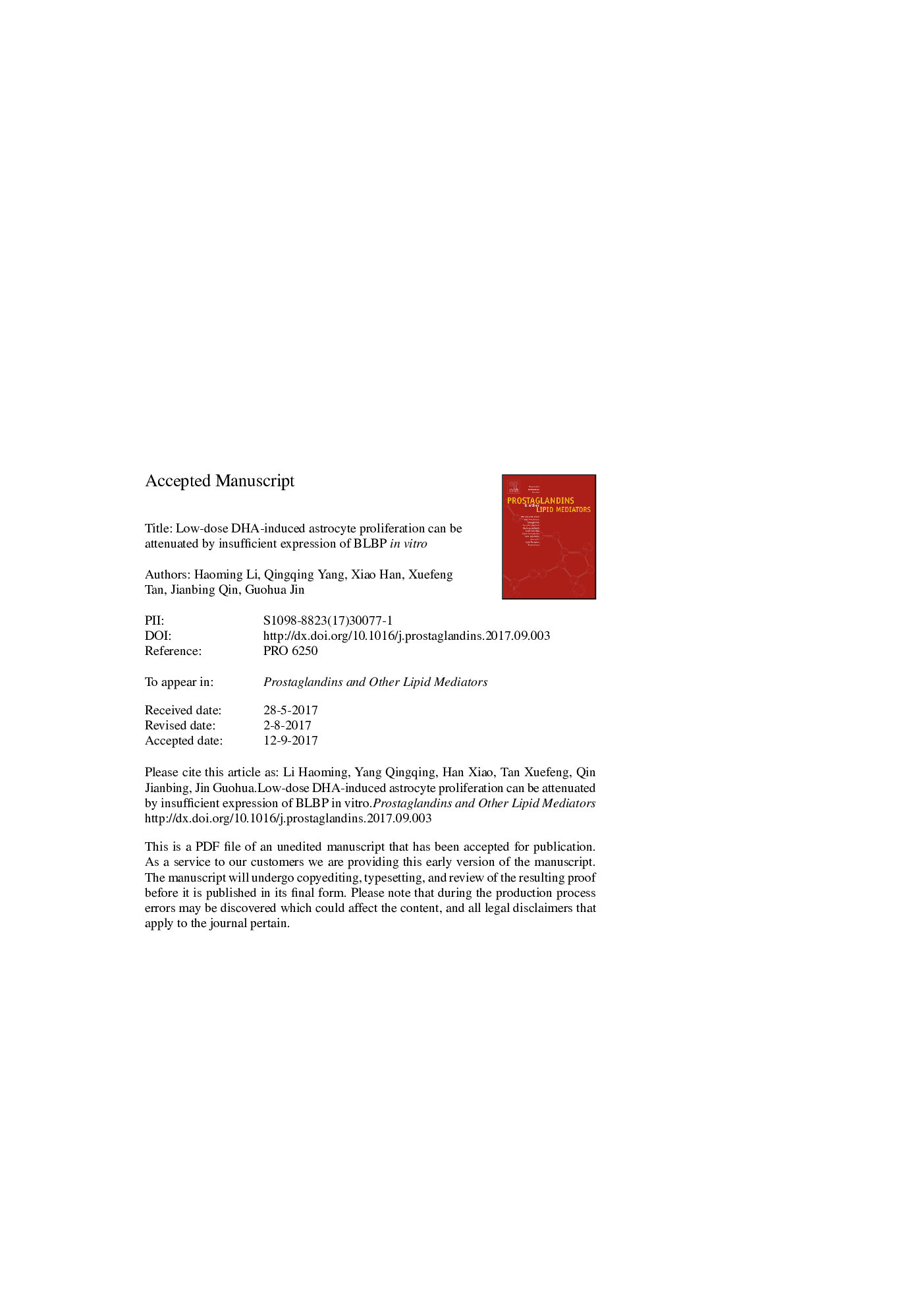| Article ID | Journal | Published Year | Pages | File Type |
|---|---|---|---|---|
| 8359135 | Prostaglandins & Other Lipid Mediators | 2018 | 22 Pages |
Abstract
Docosahexaenoic acid (DHA) is an n-3 long chain polyunsaturated fatty acid (PUFA) that is involved in a wide range of cellular processes in human cells. Brain lipid binding protein (BLBP) exhibits a high affinity for n-3 PUFAs, especially DHA, but the precise functional contributions of DHA and BLBP in astrocytes are not clear. We analyzed cell viability and the ratio of Ki67 positive cells after manipulating DHA and/or BLBP levels in cultured astrocytes, and found that low-dose DHA stimulated proliferation of astrocytes, whereas this proliferative effect could be attenuated by downregulation of BLBP. Moreover, we found that astrocyte proliferation was directly regulated by BLBP independently of DHA. Taken together, low-dose DHA-induced astrocyte proliferation was disturbed by insufficient BLBP; and besides acting as a fatty acid transporter, BLBP was also involved in the proliferation of astrocytes directly.
Keywords
EPAFABPsPDLPUFAsBLBPNSCsPGE2COX-2GFAPCCK-8FBSPBSBSADMSOn-3 PUFAsRNA interferenceRNAiAstrocytesbovine serum albuminArachidonic aciddocosahexaenoic acidFatty acidPolyunsaturated fatty acidsProliferationCNSDHADimethyl sulfoxidefetal bovine serumNeural stem cellscentral nerve systemCyclooxygenase-2cell counting kit-8Glial fibrillary acidic proteinbrain lipid binding proteinPropidium iodideProstaglandin E2Poly-d-lysineoptical density
Related Topics
Life Sciences
Biochemistry, Genetics and Molecular Biology
Biochemistry
Authors
Haoming Li, Qingqing Yang, Xiao Han, Xuefeng Tan, Jianbing Qin, Guohua Jin,
